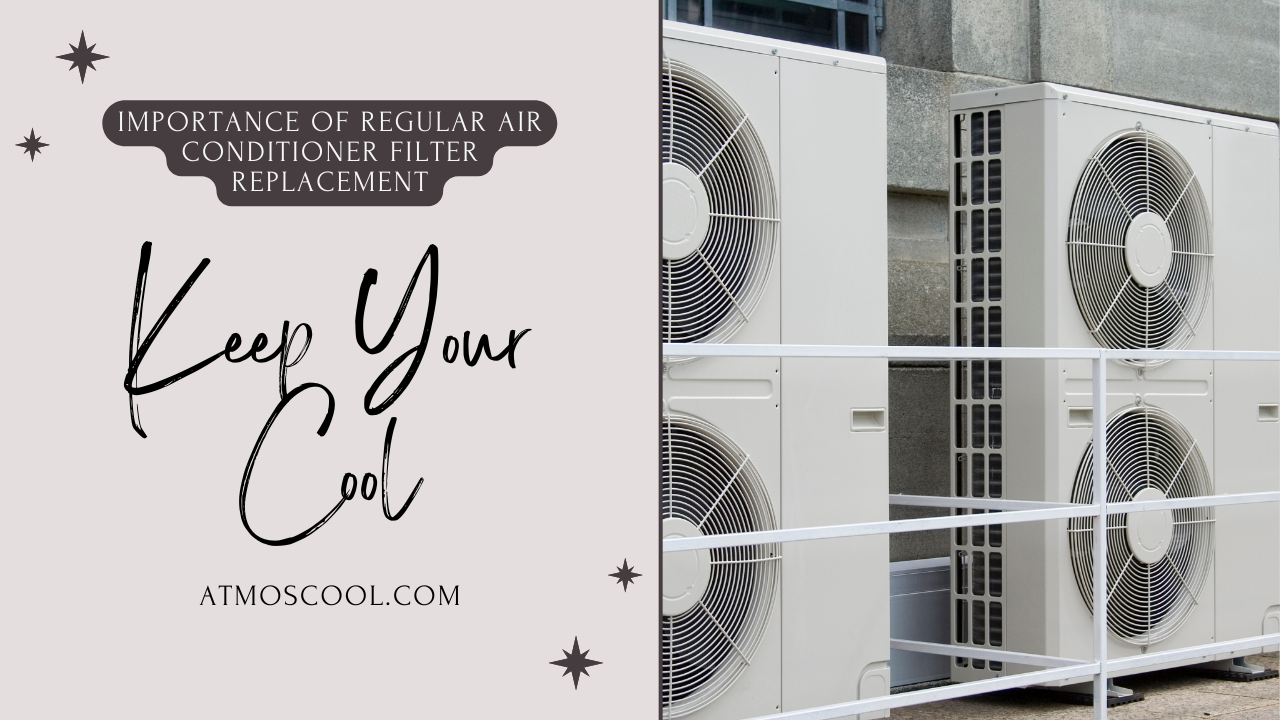Air conditioning systems are essential for maintaining comfort in our homes, especially during the hot summer months. However, to keep these systems running efficiently, regular maintenance is crucial. One of the simplest yet most effective air conditioning maintenance tips is regularly replacing your air conditioner filter. This article delves into why this task is so important, how it benefits your system, and how to do it correctly.
How Air Conditioner Filters Work
Air conditioner filters play a vital role in maintaining the performance of your cooling system. These filters trap dust, pollen, and other airborne particles before they enter the air conditioning system. By capturing these particles, filters help to prevent them from circulating through your home and clogging the internal components of your AC unit.
There are several types of air conditioner filters available, each with its advantages and disadvantages. Fiberglass filters are the most basic and affordable option, but they offer minimal filtration. Pleated filters, on the other hand, are more efficient at capturing smaller particles due to their increased surface area. HEPA filters are highly effective at removing airborne contaminants, making them a great choice for homes with allergy sufferers, although they are more expensive.
Benefits of Regular Air Conditioner Filter Replacement
Improved Air Quality
One of the primary benefits of regularly replacing your air conditioner filter is the improvement in indoor air quality. A clean filter ensures that your home’s air remains free from dust, pollen, and other allergens. This can lead to fewer respiratory issues and a healthier living environment, especially for those with allergies or asthma.
Enhanced Energy Efficiency
A clean filter significantly improves your air conditioner’s energy efficiency. When a filter becomes clogged, it restricts airflow, causing your AC unit to work harder to maintain the desired temperature. This increased workload results in higher energy consumption and, consequently, higher utility bills. Regularly replacing the filter ensures that air flows freely through the system, reducing energy usage and lowering your monthly expenses.
Studies have shown that a clogged filter can cause a 5-15% increase in energy consumption. By keeping your filter clean, you can avoid these extra costs and keep your energy bills under control.
Prolonged System Lifespan
Regular filter replacement also extends the lifespan of your air conditioning system. A clean filter reduces strain on the AC unit by ensuring proper airflow. This helps prevent overheating and reduces wear and tear on the system’s components. As a result, your air conditioner will likely last longer, and you’ll avoid the need for frequent repairs or replacements.
Cost Savings Over Time
In addition to reducing energy bills, maintaining a clean filter helps you save money in the long run by minimizing the risk of expensive repairs. A clogged filter can lead to various air conditioning problems, including frozen coils, reduced cooling efficiency, and even complete system failure. By replacing the filter regularly, you can prevent these issues and avoid costly AC repair services.
Signs It’s Time to Replace Your Air Conditioner Filter
To ensure your filter is replaced when necessary, be aware of the following signs that indicate it’s time for a change:
Visible Dirt and Dust on the Filter
One of the simplest ways to check if your filter needs replacing is by inspecting it visually. If you see a significant buildup of dirt and dust on the filter, it’s time to replace it. A clean filter should be relatively free of debris.
Increased Allergy Symptoms or Dust in the Home
If you or your family members are experiencing increased allergy symptoms or noticing more dust in the home, a dirty filter might be the cause. When a filter is clogged, it becomes less effective at trapping allergens and dust, allowing these particles to circulate throughout your home.
Reduced Airflow from Vents
Another sign that your filter needs replacing is reduced airflow from your vents. If you notice that the air coming out of your vents is weak or inconsistent, a clogged filter might be restricting airflow. Replacing the filter should restore proper airflow and improve the overall performance of your AC system.
Higher Energy Bills
A sudden increase in your energy bills can also be a sign of a dirty filter. As mentioned earlier, a clogged filter forces your air conditioner to work harder, leading to higher energy consumption. If you notice a spike in your utility bills, check and replace your filter as needed.
How Often Should You Replace Your Air Conditioner Filter?
The frequency of filter replacement depends on several factors, including the type of filter you use, the size of your household, and your usage patterns. As a general guideline, standard filters should be replaced every 1-3 months. However, if you have a higher-quality filter, such as a HEPA filter, you might only need to replace it every 6-12 months.
Several factors can influence how often you should replace your filter:
- Household Size: Larger households with more occupants or pets may require more frequent filter changes due to increased dust and debris.
- Pets: Homes with pets often have higher levels of pet dander, which can clog filters more quickly.
- Air Quality: Living in areas with poor air quality may necessitate more frequent filter replacements.
- Usage Patterns: If you use your air conditioner extensively during peak seasons, such as summer, your filter may need to be replaced more often.
How to Replace Your Air Conditioner Filter
Replacing your air conditioner filter is a straightforward process that can be done in a few simple steps:
- Turn Off the Power: Before replacing the filter, turn off the power to your air conditioner to ensure safety.
- Locate the Filter: Find the filter compartment in your air conditioning unit. It is usually located near the return air duct or blower compartment.
- Remove the Old Filter: Carefully remove the old filter from its compartment. Pay attention to how it is positioned to ensure you install the new filter correctly.
- Install the New Filter: Insert the new filter into the compartment, ensuring it fits snugly and is oriented correctly. Most filters have arrows indicating the direction of airflow.
- Turn the Power Back On: Once the new filter is in place, turn the power back on and check that the system is operating properly.
Common Mistakes to Avoid
- Installing the Filter Backward: Ensure the filter is installed with the airflow arrows pointing in the correct direction.
- Choosing the Wrong Size: Always check the size specifications of your filter to ensure it fits properly in the compartment.
- Forgetting to Turn Off the Power: Always turn off the power before performing maintenance to avoid accidents.
When to Call a Professional
While replacing the filter is a simple task, there are situations where professional assistance might be needed. If you have difficulty accessing the filter, are unsure about the correct type or size, or experience any unusual symptoms with your AC system, it’s best to consult a professional. An HVAC technician can provide expert advice and ensure that your air conditioner is operating efficiently.
The Environmental Impact of Regular Filter Replacement
Regular filter replacement not only benefits your air conditioning system but also has positive environmental implications.
Reduced Energy Consumption
By keeping your air conditioner running efficiently with a clean filter, you help reduce overall energy consumption. This contributes to lower greenhouse gas emissions and less strain on energy resources.
Recycling Old Filters
Dispose of used filters responsibly by checking with your local waste management services for recycling options. Some filters are recyclable, while others need to be thrown away in regular trash.
Choosing Eco-Friendly Filters
Consider using eco-friendly filters, such as reusable or biodegradable options. These filters have a lower environmental impact and can often be cleaned and reused multiple times, reducing waste.
Stay Cool and Save Money – The Power of Regular Filter Replacement
Regular air conditioner filter replacement is a critical aspect of air conditioning maintenance that should not be overlooked. By keeping your filter clean, you ensure better air quality, enhance energy efficiency, prolong your system’s lifespan, and save money on repairs and utility bills.
To maintain optimal performance and avoid air conditioner repair signs, make filter replacement a priority in your maintenance routine. Set reminders to check and replace your filters regularly, and consult with an HVAC professional if needed. With proper care, your air conditioning system will continue to provide reliable comfort for years to come.
By following these guidelines, you can keep your air conditioner in top shape and enjoy a healthier, more efficient home environment.




